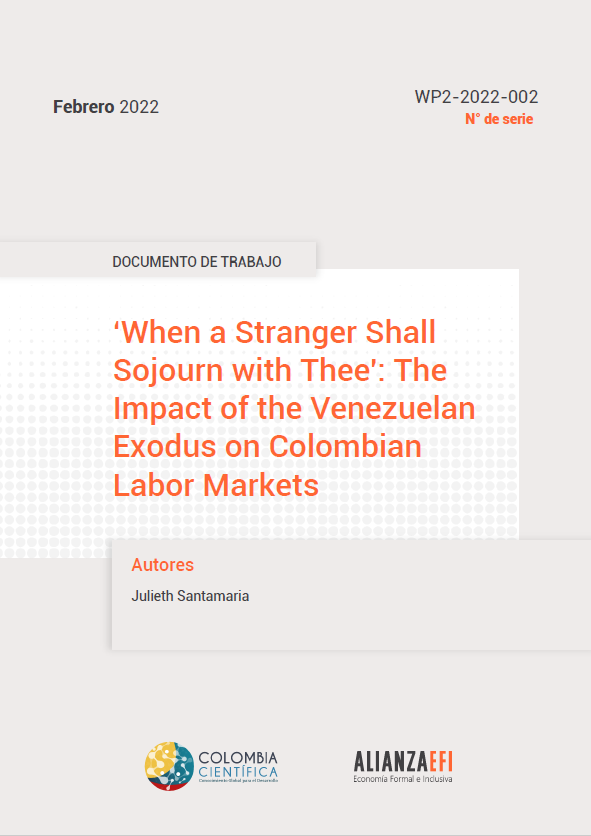The Fiscal Impact of Immigration: Labor Displacement, Wages, and the Allocation of Public Spending*
We reexamine the effect of immigration on public finances by accounting for second-order effects. We exploit exogenous variation in immigration across Colombian metropolitan areas between 2013 and 2018, resulting from the large increase in Venezuelan immigrants, and instrument immigrants’ residential location using preexisting settlement patterns and the distance between origin-destination flows. Our findings indicate that […]
The Contribution of Workers, Workplaces, and Sorting to Wage Inequality in Mexico
We use a matched worker-workplace dataset comprising the near universe of formal private-sector workers in Mexico to estimate the contribution of average workplace-specific wagepremia, worker-level characteristics, and assortative matching on Mexico’s wage inequalitybetween 2004 and 2018. To this end, we regress log earnings on sets of worker and work-place fixed effects and perform a decomposition […]
The Fiscal Impact of Immigration: Labor Displacement, Wages, and the Allocation of Public Spending
We reexamine the effect of immigration on public finances by accounting for second-order effects. We exploit exogenous variation in immigration across Colombian metropolitan areas between 2013 and 2018,resulting from the large increase in Venezuelan immigrants,and instrument immigrants’ residential location using pre-existing settlement patterns and the distance between origin-destination flows. We find that immigration did not […]
‘When a stranger shall sojourn with thee’: the impact of the venezuelan exodus on colombian labor markets

This paper analyzes the effect of open-door immigration policies on local labor markets. Using the sharp and unprecedented surge of Venezuelan refugees into Colombia, I study the impact on wages and employment in a context where work permits were granted at scale. To identify which labor markets immigrants are entering, I overcome limitations in social […]